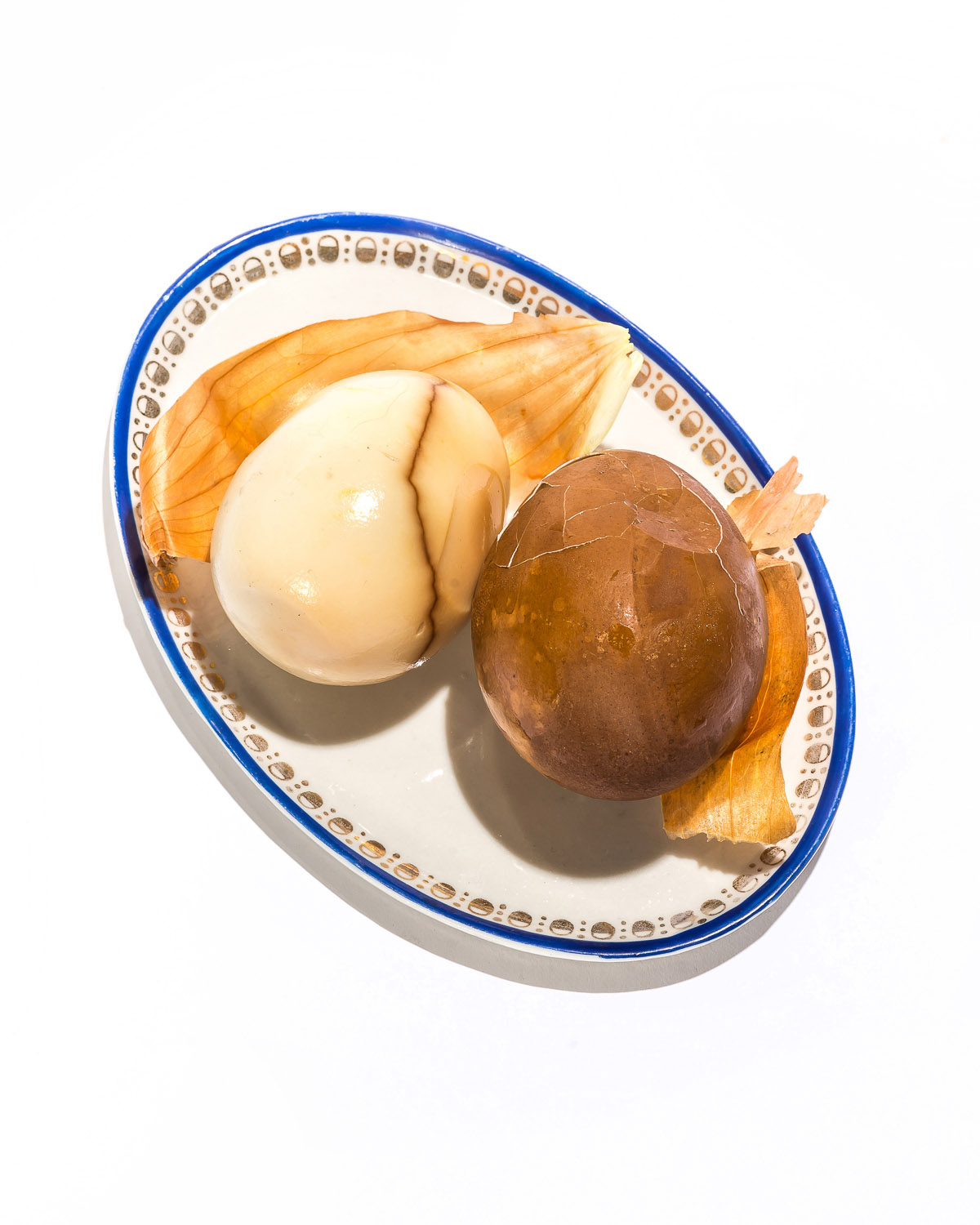Haminados
Look, I don’t want to fight. If you must, you can use your Instant Pot for cholent, for chicken, for brisket, for pkaila… hell, you can use it to bake challah, too. But if you imagine for one minute that you can submerge a dozen eggs in some sleek gadget and come out with huevos haminados, you are misguided and in need of immediate instruction.
Huevos haminados—Sephardic slow-cooked eggs—cannot be properly made unless they are boiled in water filled with the detritus of your specific domestic life. My grandmother, whose family hailed from what is now Macedonia, made hers with Chock full o’Nuts coffee grinds and onion skins—she might also part with a Lipton tea bag, provided it had already been used 342 times—plus a few teaspoons of white vinegar. She brought the pot to a boil, during which streams of oniony coffee-grind water would drip down the sides and dry out, filling the air and sparking inquisitive stares from whatever Ashkenazic neighbors might be passing through her apartment. The pot was then set on low heat from Friday afternoon to Saturday midday, at which point what emerged were hardboiled eggs with strikingly brown whites and greenish yolks. They tasted, for obvious reasons, like her home.
They are also eerily reminiscent of chicken, which makes sense once you understand the science at work. In his seminal work On Food and Cooking, none other than Harold McGee noted that the unique flavor of these “Jewish eggs” was a consequence of the tiny amount of glucose sugar in the egg whites reacting with the albumen protein to create the flavors most frequently associated with browned foods.
Undoubtedly, some smart-ass will chime in to explain that what is described above is known as the Maillard reaction—which, he will add (it will be a he), is precisely what you get with… the Instant Pot! I know this. What I am trying to tell you is that you will be depriving yourself and future generations of an important lesson—about life, home, and the magic that can be made out of your particular scraps.
Alana Newhouse is the editor and founder of Tablet.

